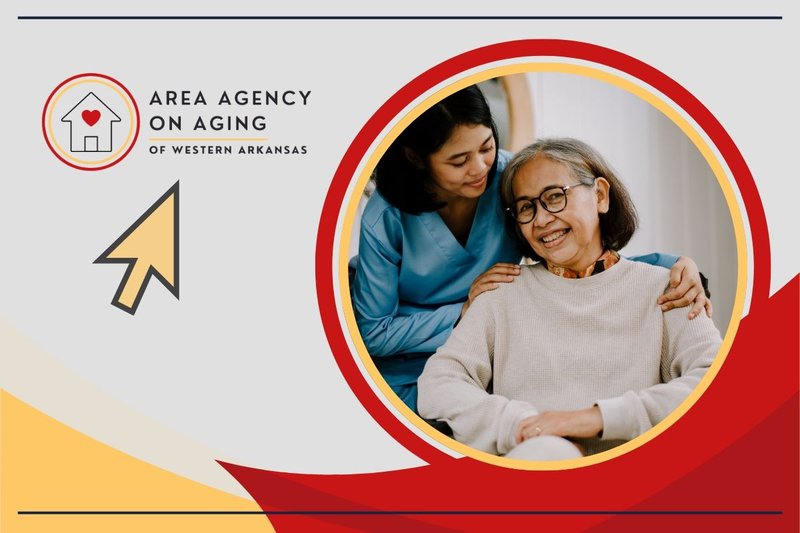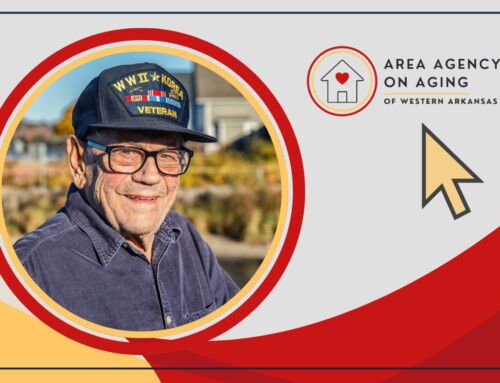If your aging parent needs help, support may be closer than you think. From food programs to housing and care, there are services built to meet real needs. We’ll guide you through where to find help, how to get it, and what to ask. Whether you’re buried in paperwork or unsure where to begin, resources for elderly loved ones can save you time and worry. Let’s find help that meets your family’s needs.
Key Takeaways:
- Medicare: Federal health coverage for those 65+ or younger if disabled or with end-stage kidney failure.
- Medicaid: Helps low-income seniors with nursing homes, home care, and daily aid.
- Housing Assistance: HUD’s Section 202 program supports seniors with rent and services.
- Food Aid: SNAP, Meals on Wheels, and food pantries support nutrition; BenefitsCheckUp.org helps with eligibility.
- Financial Support: SSI, LIHEAP, and Medicare Savings Programs assist with cash, utilities, and medical bills.
- In-Home Care: Licensed agencies and private caregivers also offer help. Additionally, Medicaid may cover some costs.
- Caregiver Support: Respite care, dementia aid, and free planning tools from the National Institute on Aging are available.
- Transportation: Many cities offer senior transit; rural seniors can use specialized vans and services.
- Mental Health: Senior centers offer counseling, social events, and emotional support.
- Trusted Resources: Use Eldercare Locator, NCOA, and local Area Agencies on Aging for reliable help.

Exploring Resources for Elderly Adults: A Complete Guide to Support and Services
As we age, daily life can bring new challenges. For instance, from managing healthcare and housing to staying safe and connected, seniors often need a little support. Fortunately, there are many resources for elderly adults—both locally in Arkansas and nationally—that are designed to help older adults thrive.
Whether you’re a senior, a caregiver, or a concerned family member, this guide walks you through essential programs and services that support aging with dignity, independence, and peace of mind.
Understanding Medicare and Medicaid for Senior Health Needs
Healthcare is one of the biggest concerns for older adults. Therefore, Medicare and Medicaid are two of the most important resources for elderly individuals.
Medicare, for instance, is a federal health insurance program for adults age 65 and older. It covers hospital stays (Part A), doctor visits (Part B), and can include prescription drug coverage (Part D). Moreover, many people are automatically enrolled when they receive Social Security.
On the other hand, Medicaid helps cover healthcare costs for low-income seniors, including in-home care or nursing home support. As a result, it often fills in the gaps left by Medicare. In Arkansas, Medicaid is managed by the Department of Human Services.
Both programs offer life-saving benefits, but may feel confusing. That’s where local support comes in. Area Agency on Aging of Western Arkansas helps seniors navigate these systems with clarity and care.
Applying for Benefit Programs Is Easier With the Right Tools
Sometimes, getting help is just a matter of knowing where to look. To begin with, one great place to start is BenefitsCheckUp.org, a free tool from the National Council on Aging. By simply entering basic information, you’ll see which programs you or your loved one may qualify for, including assistance with food, utilities, housing, and healthcare. Additionally, this tool can streamline the process, making it easier to find the support you need.
Local organizations like Area Agency on Aging of Western Arkansas can also help you complete applications in person or over the phone. If you’re unsure where to start, call the Eldercare Locator at 1-800-677-1116.
These tools are easy to use and can make a big difference in your monthly budget and overall quality of life.
Housing Resources for the Elderly Help Keep Seniors Safe and Housed
Safe, affordable housing is essential for aging well. Fortunately, there are several resources for elderly adults who need help with housing costs or accessibility.
For instance, HUD’s Section 202 Supportive Housing Program funds affordable apartments for low-income seniors. Rent is income-based, and many buildings additionally include services like meals, transportation, and light housekeeping.
Other options include:
- Shared housing (splitting rent with a roommate)
- Senior co-ops or group homes for community living
- Home modifications like ramps or grab bars, funded by state or local programs
- Property tax relief through your local government
If you're unsure what’s available in your area, your local public housing agency or Area Agency on Aging of Western Arkansas can help you find the right fit.
In-Home Care Services Offer Daily Help and Independence
Many older adults prefer to stay at home as they age. Thankfully, in-home care services make this possible. These services can include a variety of options that promote independence and comfort.
Firstly, families can receive help with essential tasks such as dressing, bathing, and hygiene. Additionally, meal preparation and clean-up ensure that nutritional needs are met effortlessly. Furthermore, medication reminders provide peace of mind for both seniors and their families.
Moreover, companionship and regular check-ins help combat loneliness, while light housekeeping and errands make daily living manageable.
You can receive care through private providers or public programs. For instance, in Arkansas, Area Agency on Aging of Western Arkansas (AAAWA) offers home health, personal care, and homemaker services that are affordable, reliable, and tailored to each client's unique needs.
Tools and Equipment Support Daily Safety at Home
Sometimes, the right tools can make all the difference in comfort and safety. Great resources for elderly adults include:
- Grab bars in the shower or near the toilet
- Raised toilet seats or shower chairs
- Reachers and easy-grip utensils
- Medical alert systems or emergency call buttons
- Walker trays or bed rails
If you’re unsure what’s needed, a home assessment through your local agency, such as AAAWA, can help identify risks and solutions.
Financial Support Programs Help With Monthly Expenses
Living on a fixed income can be tough. Fortunately, programs exist to ease the burden.
Some of the most helpful include:
- Supplemental Security Income (SSI) – monthly cash for low-income seniors
- SNAP (formerly food stamps) – helps pay for groceries
- LIHEAP – helps cover energy bills, especially in extreme weather
- Medicare Savings Programs – reduce Medicare premiums and drug costs
- Extra Help – lowers out-of-pocket costs for prescriptions
You can apply for many of these programs online at BenefitsCheckUp.org, or, additionally, get local help at a nearby senior center or Area Agency on Aging office.
Caregivers Can Find Respite and Guidance Too
Caring for a loved one can be rewarding, but it’s also exhausting. That’s why resources for elderly caregivers are just as important.
Support options also include:
- Respite care (temporary relief so caregivers can rest)
- Support groups for Alzheimer’s, dementia, or chronic care
- Care planning help through AAAWA
- Educational tools like checklists, calendars, and logs from the National Institute on Aging
If you are a full-time caregiver, you may also qualify for financial assistance or training programs. Reach out to AAAWA or your local health department for more information.
Food Assistance Programs Keep Seniors Nourished
No one should go hungry—especially not our elders. Fortunately, there are several programs available that offer food support for older adults.
To begin with, Meals on Wheels delivers hot meals directly to homebound seniors, ensuring they receive nutritious food regularly. Additionally, SNAP helps pay for groceries, making daily shopping more manageable for those on a fixed income.
Moreover, local food banks and pantries provide emergency groceries, offering immediate assistance to those in need. Furthermore, the Senior Farmers Market Nutrition Program offers coupons for fresh produce, promoting healthy eating habits.
Finally, congregate meals at senior centers provide an opportunity for social lunches in group settings, fostering a sense of community and companionship among the elderly.
Ask your local Area Agency on Aging about how to sign up. They often help with applications and deliveries.
Transportation Services Keep Seniors Mobile and Independent
Getting to appointments or the grocery store can be hard without a car. That’s why transportation services are also a vital part of resources for elderly adults.
Local options may include:
- Non-emergency medical transportation
- Curb-to-curb shuttle services
- Accessible vans with wheelchair lifts
- Senior ride programs through churches or nonprofits
Transportation for Seniors in Rural Areas
For seniors living in rural areas, transportation can be even more challenging. However, specialized services are available to meet these needs:
- Vans equipped for rural terrain
- Partnered services with local community organizations
- Flexible scheduling to accommodate longer travel times
These tailored solutions help ensure seniors in rural regions stay connected to essential services and maintain their independence.
In Fort Smith and nearby areas, AAAWA can help coordinate these services. To schedule a ride, seniors can call 479-424-2098.
Emotional and Social Wellness Is Just as Important
Being connected truly matters. For example, isolation can lead to depression and other health issues. Thankfully, there are many community programs focused on emotional support.
To begin with, look for senior centers offering classes, games, and social events. Additionally, consider phone call check-ins or friendship programs that provide regular interaction. Moreover, counseling or therapy through local clinics or Medicare providers offers professional support. Furthermore, faith-based outreach and community groups can also bring companionship.
Even a weekly visit or phone call can brighten someone’s day. Therefore, ask your local senior center or AAAWA about opportunities to get involved.
Finding Resources Starts With One Call
Navigating services can feel overwhelming. But you don't have to do it alone.
Start with:
- Area Agency on Aging of Western Arkansas – local support for seniors and caregivers
- Eldercare Locator – search by ZIP code or call 1-800-677-1116
- National Council on Aging – national resources, tools, and benefits
- Arkansas DHS Aging Services – state-run programs for aging adults
These organizations are reliable, free to use, and focused on your well-being.
Connect With Trusted Support Today
Your Resource for Local Aging Assistance
If you or someone you love needs help navigating care, housing, or daily support, Area Agency on Aging of Western Arkansas is here to help. Our team understands the unique needs of older adults and offers guidance you can trust. Whether you need meals, rides, or in-home care, we will help build the right plan for you. Contact us today to get started.


